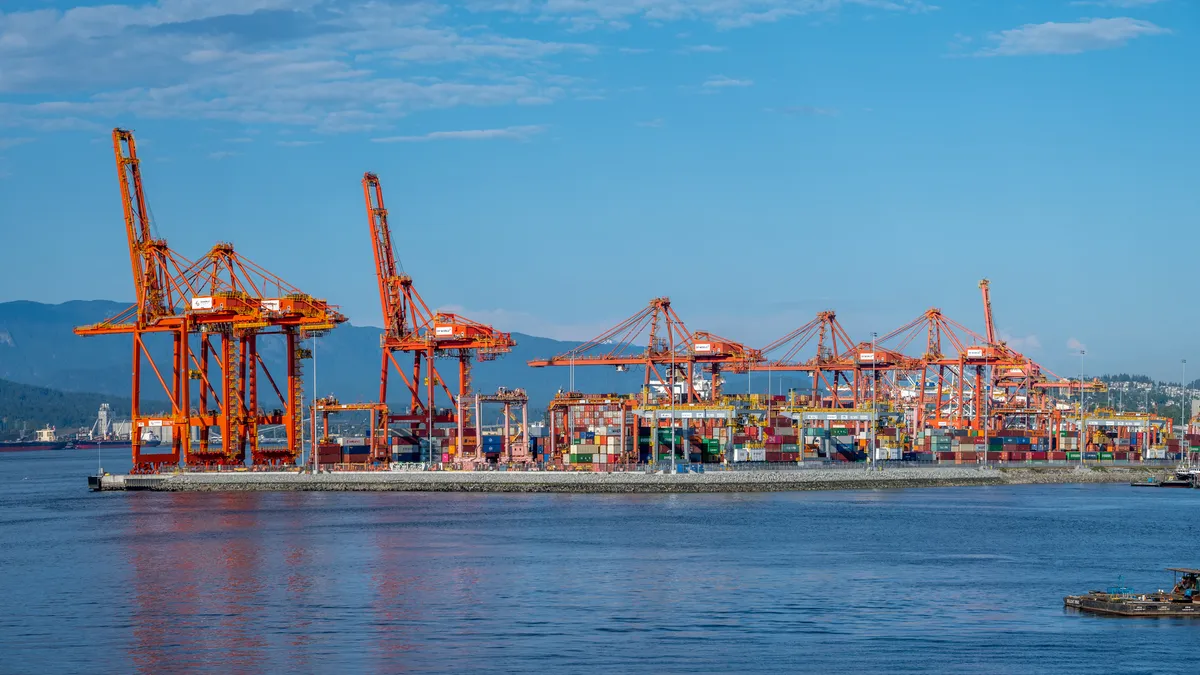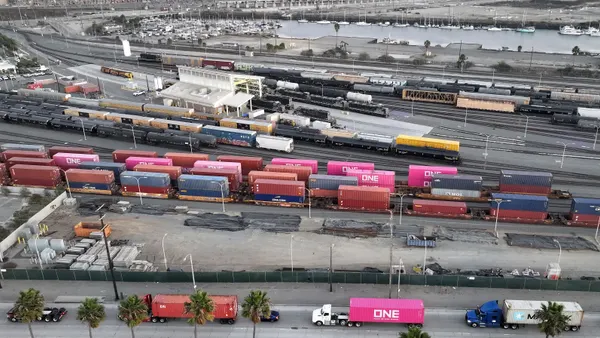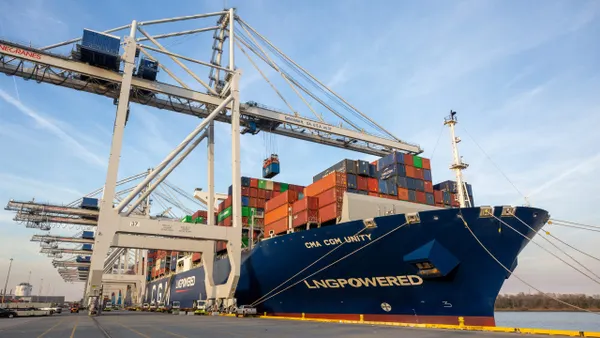A four-year labor contract is now in place at Canada’s West Coast ports after both the negotiating union and maritime employers ratified the deal, bringing stability back to the country’s supply chains.
The International Longshore and Warehouse Union Canada on Aug. 4, said 76% of its longshore division members had voted to ratify a tentative deal. Members of the British Columbia Maritime Employers Association had ratified the deal days earlier, on July 31.
The news officially ends a period of uncertainty in Canada. The country’s supply chains had felt the effects of a 13-day longshore workers strike in early July, after negotiations stalled. For the rest of the month, stakeholders watched and waited as union officials pushed employers — through bargaining, union votes and strike threats — to reconsider contract terms on safety, training and work jurisdiction before finally ratifying a new deal in August.
In the end, the contract talks took five months of negotiations, mediation and conciliation, but also caused five weeks of labor instability for British Columbia ports, according to the BCMEA.
In an Aug. 4 statement, the group acknowledged the uncertainty and disruptions at Canada’s West Coast ports had “profound repercussions” on the country’s supply chains. The BCMEA had previously estimated 800 million Canadian dollars worth of goods were compromised with each day of a port strike, as 25% of the country’s trade is handled by ports of Vancouver and Prince Rupert.
The high economic cost had spurred action from the federal government throughout the negotiations. On July 19, Prime Minister Justin Trudeau convened several senior federal officials for a briefing on the labor dispute, and directed them to pursue “all available options to ensure the stability of our supply chains,” according to a readout.
The Canada Industrial Relations Board, a federal agency designed to help resolve workplace disputes, had a significant role in assisting the parties reach an agreed-upon deal.
With a ratified deal in hand, the BCMEA said stakeholders at Canada’s West Coast ports now had to work to rebuild trust in the gateways, as the prolonged dispute had damaged the country’s trading reputation.
Federal officials struck a similar tune in a joint statement after the ratification news.
“We do not want to be back here again,” Canada’s Minister of Labour and Seniors Seamus O’Regan and Minister of Transport Pablo Rodriguez said in the Friday joint statement.
“Minister O’Regan has directed federal officials to review how a disruption on this scale unfolded, so that in future we can provide greater stability for the workers and businesses across Canada that depend on our BC ports,” the ministers added. “We will have more to say on this soon.”
Correction: This story has been updated to reflect the correct date of Canada's ministers of labor and transport's joint statement.















